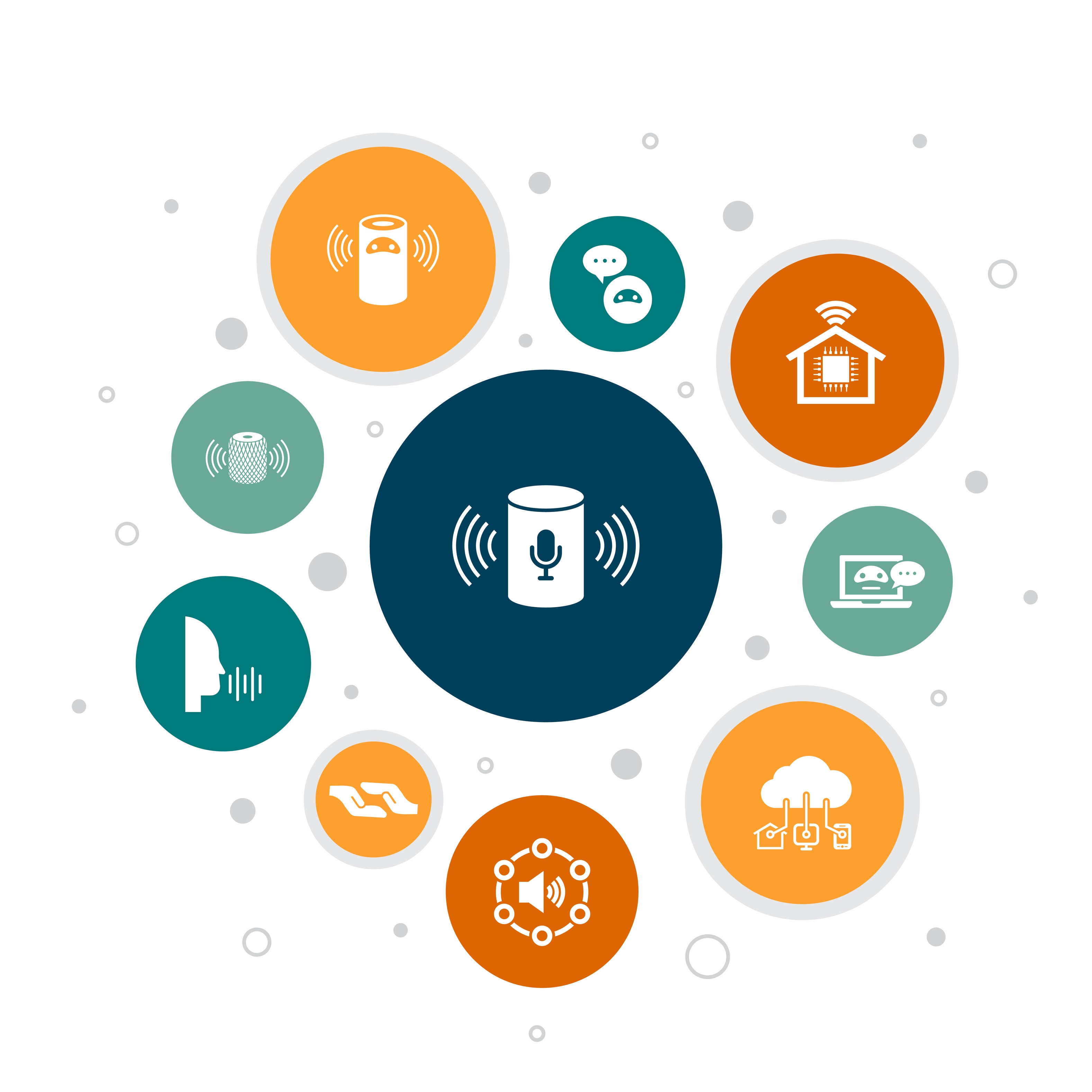Even Sheltering at Home, We're Not Alone

Alexa and Siri are two of the most popular folks around, especially as most Americans are sheltering in their homes due to the COVID-19 pandemic. Sales of smart speakers have skyrocketed in recent years: 146.9 million units were sold worldwide last year, an increase of 70% from 2018. And it’s easy to see why: The devices help us handle the little details of our daily lives, whether it’s managing our grocery lists or getting a little help to remember “that actor, from that show I love.” Your voice assistant can even offer answers to questions about coronavirus. But if recent information shows anything, it’s that these conveniences may not be worth the price…
Privacy v.s. Convenience
These IoT devices are powered by artificial intelligence that their parent companies are always working to strengthen and improve. That might sound good, but there is much more going on than meets the eye. Devices such as the Amazon Echo, Google Home, or Apple HomePod will activate, on average, up to 19 times per day. Employees of these companies listen to and review the sound clips that these devices collect. The information is mostly benign—“Alexa, what is the temperature?” “Siri, where’s the nearest gas station?”—but other times, it can get a little too personal. Apple contractors who analyzed the data to improve its artificial intelligence reported hearing couples having sex or conversations about confidential medical information. Amazon workers said they heard what sounded like a sexual assault.
In-home digital assistants can track more than just audio content. The Amazon Nest has a motion sensor inside that monitor's movement in the house. That means the device knows not only if you change the temperature, but also if you wake up in the middle of the night to use the bathroom or let the dog in. Smart lights store information about when you turn out the lights for the night, and they transmit that data to the parent company. It seems there’s not a single piece of our lives that these companies won’t attempt to analyze and monetize, if given the opportunity.
New Partnerships Bring New Privacy Threats
Given these realities, you’d think that we’d all be rushing to pitch the devices out the window. But the opposite is the case: Marriott has brought Alexa-powered Echo Dots into their hotel rooms. Guests can use the devices to control the lights, order room service, and other functions. Marriott insists that it won’t be able to listen to the content of guests’ conversation with Alexa. But even if this is true, it’s not encouraging to see a company with a poor track record on data privacy partnering with a company whose track record is even worse.
Hospitals have also begun to incorporate smart speakers into their work. Cedars-Sinai Medical Center in Los Angeles is putting them in patients’ rooms to help with basic things like changing the TV channel or calling a nurse for help getting to the bathroom. Boston Children’s Hospital is using them to help staff keep track of information like available beds. It has also developed an Alexa app called KidsMD, where parents can ask Alexa questions about what to do if they have a sick child. The goal is to minimize emergency room visits when they aren’t strictly necessary, allowing doctors to focus on patients in need of the specialized care hospitals can provide.
All these organizations have worthy goals. But we also can’t allow ourselves to slip into a world where every homeowner, hotel guest, or patient is unknowingly sharing their personal data without their consent.
What We All Can Do to Protect our Privacy at Home
If you have a digital assistant or other smart devices in your home, research the privacy protections available to you, and change your preferences. As of May 2019, neither Amazon nor Apple allowed users to request that their smart speakers to stop recording altogether, though you could go back and delete earlier recordings. You can, however, do so with Google Assistant – and you should as soon as you can.
Then, urge your lawmakers to intervene and pass laws that protect us from surveillance by connected devices. As citizens in a free country, we should have control over information about our conversations, our movements, and even the sounds of our own heartbeats.
About IDX
We're your proven partner in digital privacy protection with our evolving suite of privacy and identity products.